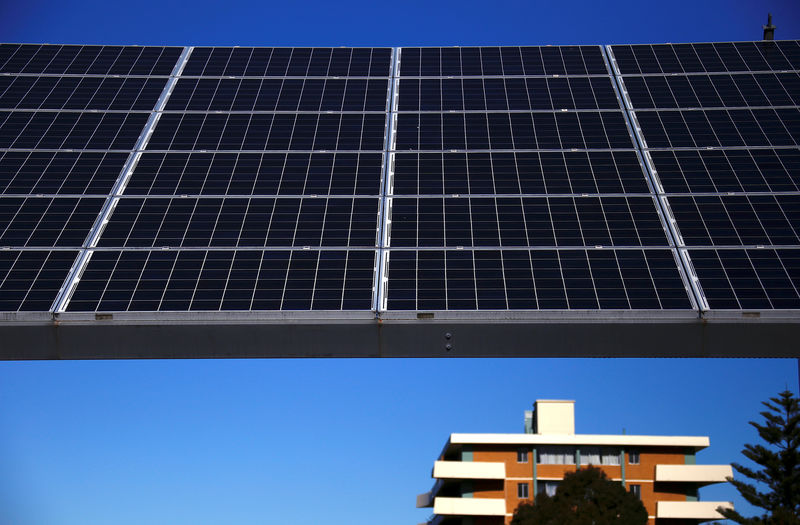By Sonali Paul
MELBOURNE (Reuters) - Australia's government on Tuesday rejected calls to set a clean energy target, instead scrapping aid for renewable projects and adopting a fuel-neutral energy policy that it said could keep the country's lights on and cut power prices.
Prime Minister Malcolm Turnbull won support from his Conservative party for a plan to end subsidies for renewable energy after 2020, while requiring energy retailers to guarantee an energy mix that would bring both reliable power and lower carbon emissions.
Turnbull set out to overhaul energy policy a year ago to end a decade of political strife over carbon targets - amid rising power prices for domestic consumers - and stabilise the nation's grid after a huge storm blacked out the country's most wind power-dependent state.
"These guarantees will ensure there is a place for all power sources in the nation's future energy mix - solar, wind, coal, gas, batteries, pumped hydro," Turnbull said, announcing the plan in a video posted on social media. "Our plan has no subsidies, no certificates and no tax."
Turnbull had faced a revolt from right-wing members of his party, led by former prime minister Tony Abbott, who do not believe climate change is a threat, and back coal while opposing subsidies for renewable energy.
Australia's energy supply woes have grown as states promoted rooftop solar and wind power over the past 10 years in the absence of a consistent national policy on carbon emissions.
At the same time, coal- and gas-fired power plants have been shut, reducing crucial back-up for wind and solar, while costs have risen. Household power prices in eastern Australia have soared 63 percent over the past nine years, the nation's consumer watchdog said in a report on Monday.
Spurning a recommendation for a clean energy target from the country's chief scientist, the new policy will allow energy retailers to decide what sources of power to use. It could result in an extension of the lives of some ageing coal-fired plants if needed to help back up intermittent wind and solar power.
Australia's biggest power retailers - Origin Energy (AX:ORG), AGL Energy (AX:AGL), and EnergyAustralia, owned by Hong Kong's CLP Holdings (HK:0002) - are also the country's biggest generators of electricity.
Trading in their shares was mixed, but AGL Chief Executive Andy Vesey welcomed the plan as a first step. "With bipartisan support, it will provide investment certainty," he said on social media.
Still, the opposition Labor Party joined wind and solar advocates in saying the decision not to adopt a clean energy target was a mistake.
"Labor's position is clear: Australia should have at least 50 per cent of its electricity delivered by renewable energy by 2030," shadow energy minister Mark Butler told reporters.
The power industry fears that if Labor does not back the plan and wins the next election - due in late 2018 or early 2019 - policy could be overhauled yet again, leaving no certainty for investors.
"The clean energy target was the best opportunity in years to lock in the long-term bipartisan energy policy needed to encourage investment in cleaner energy," Clean Energy Council chief executive Kane Thornton said in a statement.
